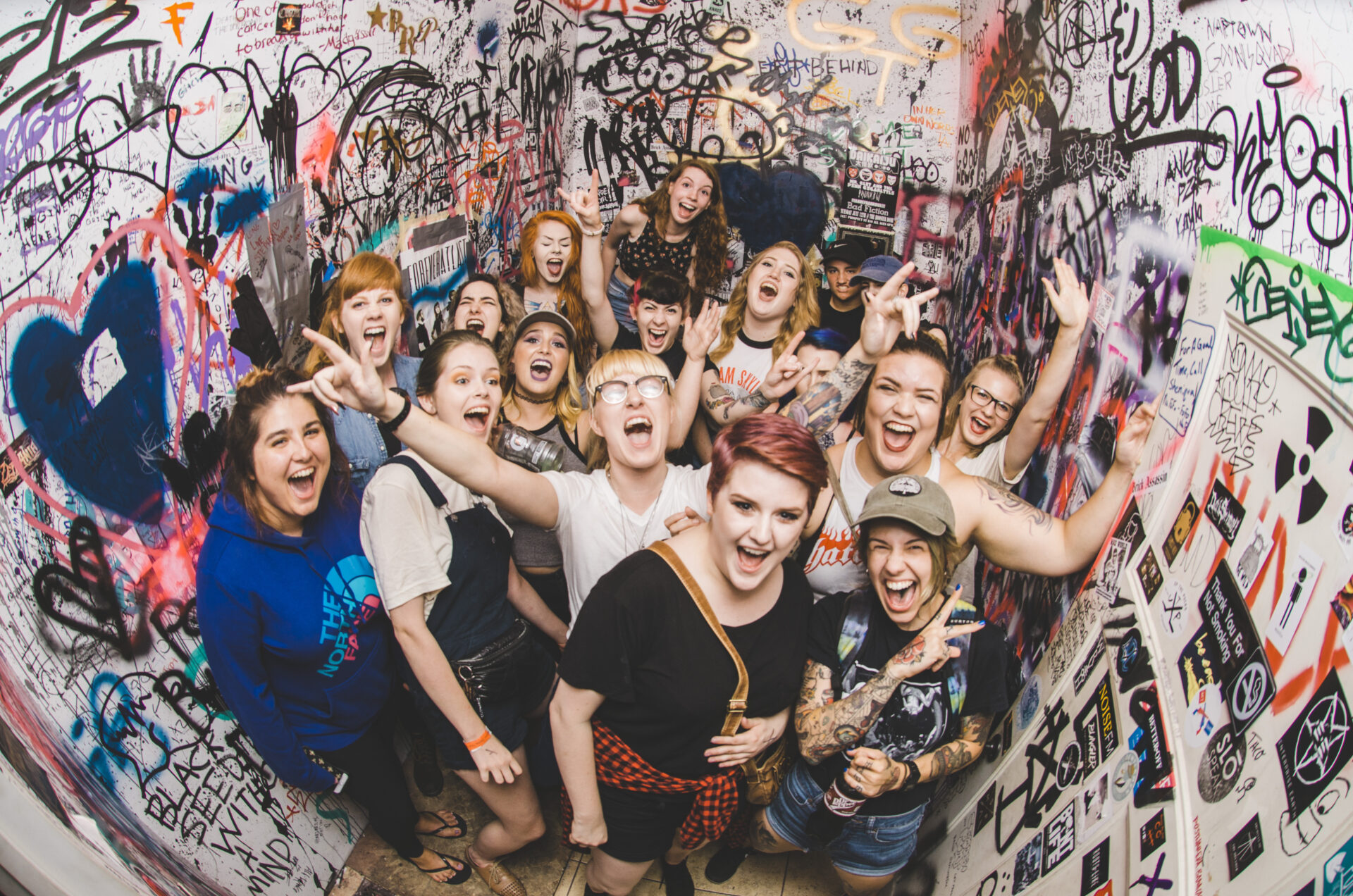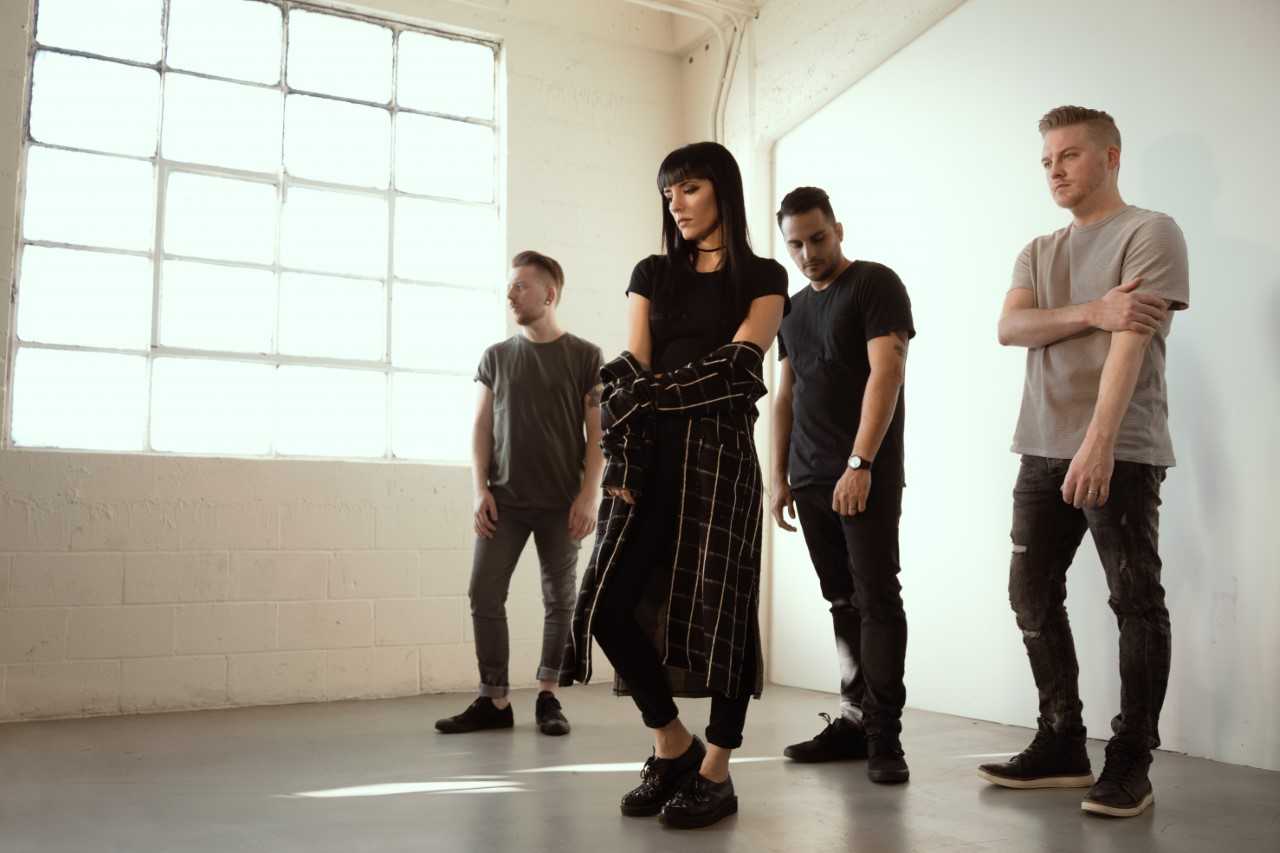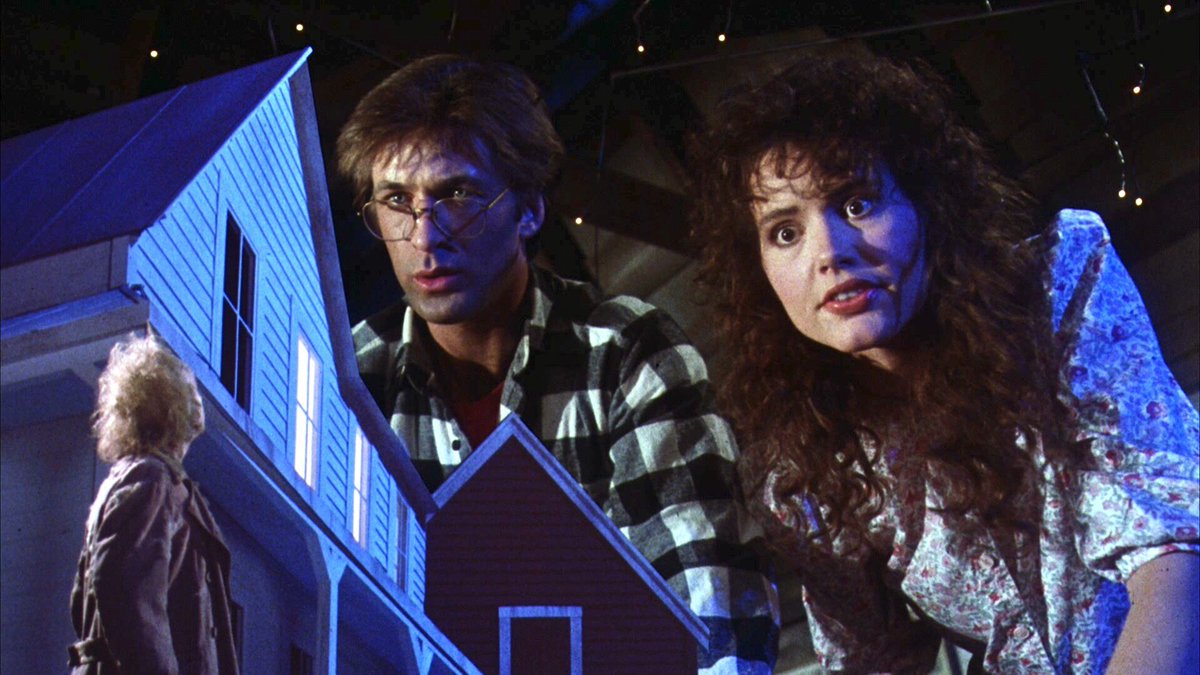[Photo: Errick Easterday]
Music festivals and live concerts provide individuals with an opportunity to escape their troubles and drown out the world around them alongside a community of peers who share that appreciation of music. Concerts are the driving force of the modern music industry, and thus can have an influence on attendees that is nearly impossible to understate. It is for this reason that venues and festivals need to be a safe and inclusive environment. Although the music industry is known for being home to a number of rather eccentric subcultures—giving the outcast a place of refuge and rebelling against societal norms—this notoriety does not always translate to tangible representation. There is a noticeable theme of booking primarily all male bands for tours and festivals that has become a cause for concern.
Under-representation of women in music is an issue that is often overlooked as being an issue in the first place, to the extent that many people argue it doesn’t exist when the topic is broached. Like many other fields, the music industry is very much a male-dominated one. This is seen throughout history—in art, film, and science. Name the industry, and chances are it suffers from some form of this problem. Music is no different, with the women who do find success rarely doing so on the uppermost echelons of power and on the lower levels, often being tokenized or commodified as “evidence” that misogyny in music does not exist.
Read more: Girls Behind The Rock Show: A year in attempting to fight sexism in music
Often, those who do recognize that music is mostly male take issue with the idea that sexism or misogyny have anything to do with it. Instead, they will argue that the cause of under-representation isn’t because of a problem within the industry, but rather that female musicians and industry workers simply don’t exist. Or that if they do exist, they are just not up to the task the way that their male counterparts are. The idea in itself that women aren’t up to par with men is a sexist notion, and one that ignores the very real difference in the standards to which men and women are held in industries where these toxic attitudes persist. Promoters seem to be more concerned with immediate monetary gain than they are the more idealistic goal of creating a climate that is conducive to women having successful careers within the music scene. On some level, this is understandable. When music festivals, booking agents, and promoters look for talent, one of the many elements they must consider is how big of a draw the band will have. Some of these talent buyers argue that the reason for them not including women on their lineups is that female bands just don’t have enough draw. However, because predominately male bands are being booked and put on shows and festivals on the lower levels, they are accumulating a larger audience, thus having a bigger draw and more of an advantage. Meanwhile, the female bands remain underground, unable to obtain the mainstream status of male bands. So, while the argument that these seldom represented bands have a smaller draw is not an inaccurate one, it is a classic example of how a technically factual statement can be rendered untrue due to a lack of context. These bands could have just as big of a draw as their cookie-cutter, all-male counterparts, if only they were given the same chances.
This is particularly true with women of color, queer, non-binary, and trans musicians. Like anything, there are exceptions to the rule; in my experience working in this field, these exceptions can be used as an argument that there isn’t sexism or prejudices embedded in the music scene because some anomalies still manage to exist within that realm. However, it remains an undeniable fact that there are far less women than men, and even fewer people who occupy several marginalized groups. Notably, there are people like Beyoncé, Lady Gaga, Hayley Williams, Meredith Graves, Julien Baker, Laura Jane Grace, and countless others paving the way for women and using that position to spread a good message. But if you look at the way women who do make it in this industry are treated, it’s not much of a cause for celebration. Women are generally treated as lesser than their male counterparts and simply not taken seriously. An example of this: On June 16, 2016 Allison Weiss, a singer and songwriter reported the following on her Twitter: “Venue dude looks right past me to Soupy (Dan Campbell of the Wonder Years) and asks, ‘Is she doing merch?’ No dude, I’m direct support…” On another occasion, Bethany Cosentino of the band Best Coast spoke up about the sexism she’s experienced in the industry on The Daily Show, stating, “There are a lot of people in the industry that treat you differently because you’re a woman. If I play a show at a venue—everybody else in my band is a man—there’s a sound guy that’s like, ‘You don’t know what you’re talking about, you’re a woman.’ [Even if] he doesn’t necessarily say that, the way he acts is portraying that idea.” These general dismissals of women and microaggressions are incredibly commonplace, and can be very harmful.
Read more: Good Girls, Bad Guys: Our scene has a serious misogyny problem, and it’s time to address it
While they may seem insignificant in the grand scheme of oppression tactics, microaggressions are a cornerstone of misogyny in “enlightened” society that can lead to more serious things such as sexual harassment, or worse. Cosentino was thrust into the spotlight after speaking up for a woman named Amber Coffman who plays guitar in a band called Dirty Projectors. Amber came forward about being sexually assaulted by a major music publicist, Heathcliff Berru. The clients who choose to continue to work with abusers despite knowing what they’ve done is a prime example of how predatory behavior gets dismissed and normalized. Similarly, Kesha’s ongoing struggle to extricate herself from her contract with her producer and alleged rapist, Dr. Luke, despite his continued acceptance from many in the music community, is a source of huge consternation to those looking to create a safer industry for women.
Understanding why a problem exists and getting to the root of it is an important step in fixing it. This trend of men holding positions of power is nothing new, so it comes as no surprise that the music industry continues to be a male-dominated field. Although the lack of women involved in music may not be a prevalent issue to the general public, it’s hard to ignore when you are a part of the marginalized groups of people that the industry excludes. The status quo is comfortable and makes it easy to disassociate from the ways we all contribute to maintaining it, so people don’t feel a personal responsibility to create or ask for change. And because it benefits men, the men at the top holding the positions of power do not have any desire to make space for women. Ultimately, the issue stems from society and the learned inequality between men and women that begins the minute gender socialization starts. Women are seen as the weaker sex and are subsequently valued less than men. This is why movements like feminism exist, fighting for the equality among genders. Up until 1920, women didn’t even have the right to vote. Men and women of color in many areas didn’t enjoy the privilege until the 1960s. To this day, we women are still fighting for some of our basic human rights. Historically, women were seen as the homemakers, they were to cook and clean, and have children while men provided for their families. The legacy of these gender roles still exists today in our modern culture. Now that women are making their way into the workforce, they are being denied the opportunities men in their positions may get. While we have come a long way, we are not where we need to be and still have a long way to go.
Once the existence of an issue has been established, the next question is: How do we fix it? While there is no magic panacea that will automatically cure all of society’s problems, we can start by making sure people who aren’t white men see themselves onstage. Inclusivity and representation is vital to a thriving community. Every aesthetic decision has a value behind it. If all of those decisions are being made by the same people, then the art produced will never look like the whole of our culture. Young women need role models to look up to. If a strong female figure is seen on stage or working in music, it encourages other women to get involved with music and ultimately helps with the imbalance. The mere presence of women is crucial in the fight to eliminate the gender disparity. Women don’t want to be put on stage because they are women, they just want to be given the same opportunities as everyone else.
Read more: Speak Up, Speak Out: 3 easy ways to make our scene safer and more inclusive
One of the many things I do in the music industry is work to bring awareness to assault and discrimination in music with an organization I helped create called Safer Scene. Recently, it was brought to light that the annual American Hardcore Fest had a mere two bands that included women out of a lineup of 20-plus bands. There was similar criticism with the Leeds and the When We Were Young lineups. So, I decided to run an anonymous survey and get feedback from the public on how news like this affects them. I asked the question, “Is diverse representation of all genders, sexual orientations, and races important on stage? Why or why not?” I had several dozen responses. Below are a couple I received. Both people stress the importance of being able to identify with others.
“Yes. I think it’s important, especially for younger people. They need to see POC/women/however they identify on that stage. It shows them that anyone can do it and that it shouldn’t be a white male-dominated culture.”
“Looking up to people who are the same as you is very important, which is why it’s equally as important that people who aren’t quite as represented in today’s society gain equal footing amongst those who already are.”
For those who have never been to live shows or who have the privilege of being white, straight, or male may not know the feeling of isolation you get when you’re occupying a space that was not designed with you in mind. There is an inherent hostility—both implied and sometimes outright—that makes it impossible to ever truly feel like you are part of the community, even if you have been a part of the scene for years. When you’re a queer woman who works in the music industry, it’s a problem that is impossible to ignore.
Not only is representation of women important, but also how women are represented. Women in music are so sparse that “female-fronted” has become its own genre. The standard is having a male lead singer and anything that deviates from that is abnormal. This leads to women being “otherized” and left struggling to combat negative stereotypes, like being portrayed as “groupies” or “fangirls,” implying that women occupy less adequate positions than men.

With such a multifaceted issue, there is no one way to fix it. Nor is it something that will change overnight. However, if strides are made to combat the under-representation of women, it will be a catalyst for change and one could only hope that one day we could live in a world that is inclusive towards women and other marginalized groups of people; one that is accepting of women and embraces a diversity of people and their talents. Several ways to attack this issue are to educate yourself and the people around you. Get involved. Everyday people can help just as much as industry professionals. They can start by reflecting on their music collection and which shows they attend and consider including more female artists. If those bands begin to accumulate interest from the public, booking agents are also going to show interest. Go out to shows, start a band, take a stand and speak out against discrimination. Spreading awareness is an integral part of solving social issues. Another key element is listening to those directly affected by these issues. Reflect on your own biases and behaviors to ensure you’re not contributing to the obstacles women in music are facing. In addition, promoters and other industry professionals can do their part by actively seeking out and making space for women. So not only do women need to pursue working on stage but also backstage permeating positions like producers, writers, public relations, managers, etc. Hannah Thacker said it best in her article “Women In The Music Industry,” written for HumanHuman: “I’m keen to stipulate that this call-to-action is more than a change in statistics or matching some politically correct quota, but by opening the doors to as many talented, creative, intelligent, passionate people as possible we are able to further enrich our international music culture with those individuals, whatever their chromosome combination may be.”
Music is a tool used to cope with daily life. It is because of this that it needs to be a safe and inclusive environment. To do that there must be representation and diversity, which will only happen with a concentrated, specific effort to make the environment hospitable to that sort of change. Change is a choice, and it starts with all of us. We have a lot to overcome in such a male-saturated world but that shouldn’t deter us. It should instead inspire us to make a difference so that the gender divergence will become a thing of the past. So perhaps the question isn’t “Why haven’t there been great female artists?,” but rather, “Why haven’t more female artists been considered great?” S













